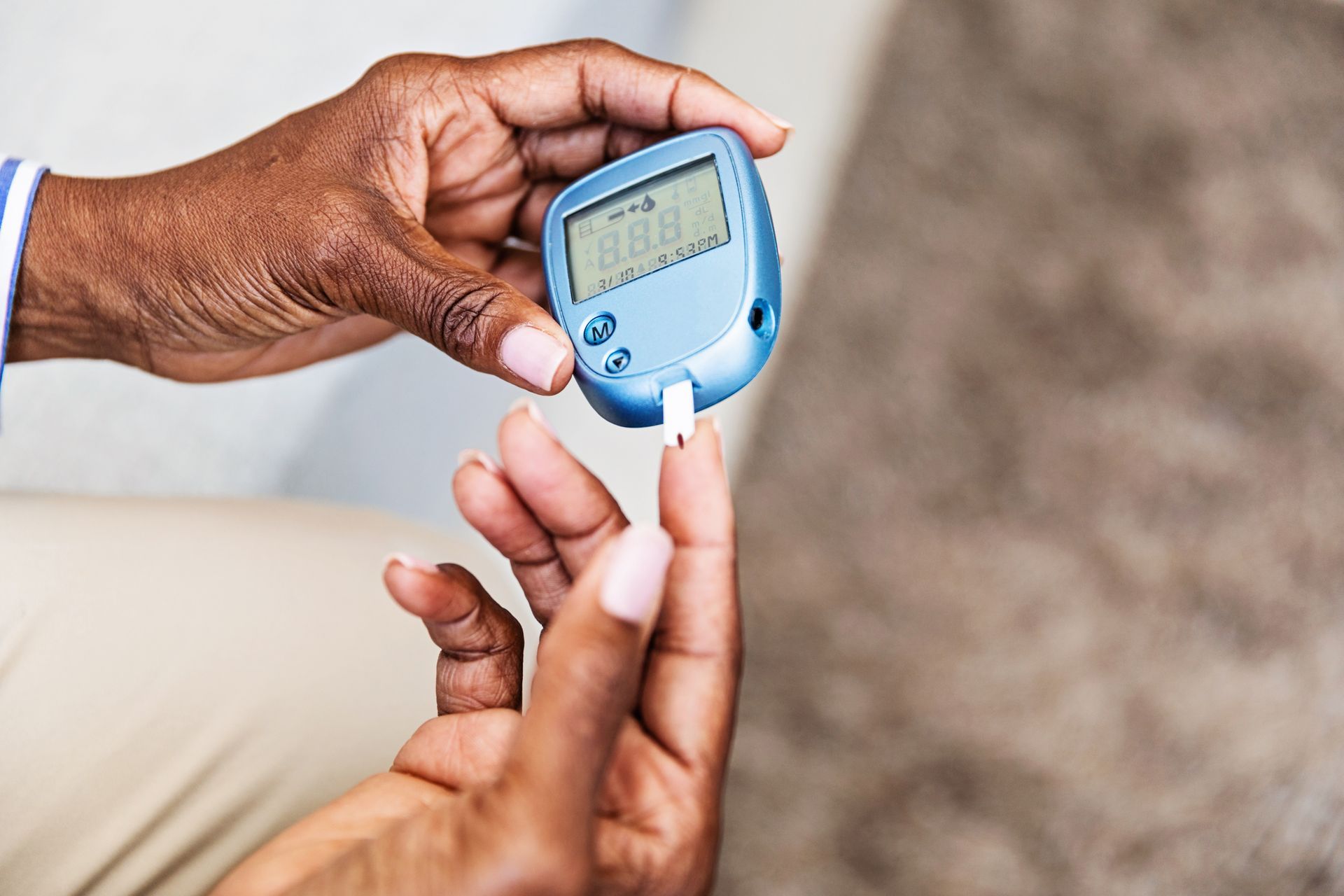Managing Diabetes

Follow These Tips During Your Stay
Your healthcare team may use a different routine to keep your blood sugar under control while you’re in the hospital. Make a diabetes care plan with your doctor, and tell them how you manage your diabetes at home, including:
- How often you check your blood sugar
- How often you take your medications and insulin
- How to handle your insulin pump if you have one
Tracking Your Blood Sugar
Sicknesses, surgeries, or new medications can cause your blood sugar to rise or fall. Your nurse may check your blood sugar more often than you are used to. They’ll adjust your care if your numbers are generally too high or too low.
Taking Medicine or Insulin
Your insulin needs may change when you are sick or after surgery. You’ll still need your insulin (if you take it) and other medications while in the hospital, but do not take them yourself. Your nurse will give them to you. If you have questions about your medication schedule, it’s okay to ask.
Avoiding Infections
Having diabetes puts you at a higher risk of getting an infection. Tell your nurse about any cuts, sores, or bruises you have.
Planning for Meals
Ask if there’s a meal plan for patients with diabetes. You can also ask to see the hospital’s dietitian. If you need to take medication or insulin before meals, discuss your schedule with your nurse. Ask your nurse what you should do if you can’t eat.
When to Call
If you have symptoms of high or low blood sugar, like feeling thirsty or shaky, call for your nurse.
When to Call
If you have symptoms of high or low blood sugar, like being thirsty or feeling shaky, call for your nurse.

